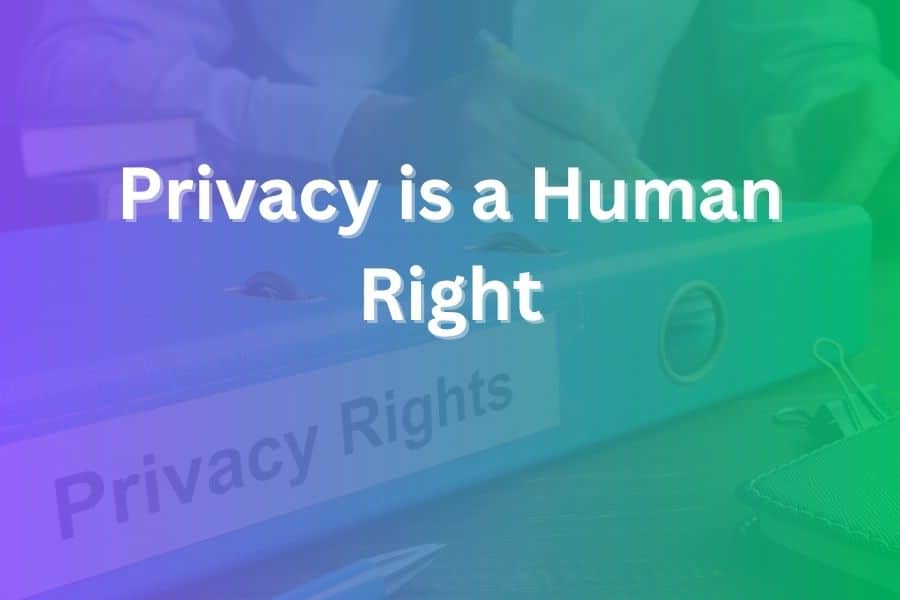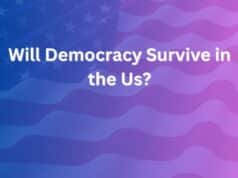
In today’s digital age, you might feel that privacy is slipping away, yet the notion that privacy is a human right remains as relevant as ever. Far beyond simply hiding your data or staying off-grid, this right empowers your autonomy, dignity and freedom to express yourself without constant surveillance.
In this article you will learn why privacy matters, how it’s recognized legally, what threats you face, and practical steps you can take to defend it.
What Exactly Does the Right to Privacy Mean for You?
When we say privacy is a human right, we mean you have the freedom to decide what personal information about you gets shared, how it gets used and with whom. Privacy isn’t just secrecy—it’s the power to control your personal space, your body of data, and your identity.
You enjoy the right to be free from arbitrary intrusions whether in your home, your communication or your digital environment. You also have the right to ensure that no one intercepts or uses your personal information without your consent.
Privacy enables your ability to think, speak and act freely: It gives you the space to reflect, experiment and form relationships without being constantly watched. It helps protect your physical self, your reputation and your freedom from manipulation or discrimination. In short, privacy is a core ingredient of human dignity and freedom.
Why Privacy Is a Critical Human Right in Today’s World
Privacy underpins many other rights you value: freedom of expression, freedom of association and freedom of thought. If you cannot speak without fear of being watched, your ability to advocate for change – or even to express yourself – becomes limited. If your data is collected and used against you, discrimination, manipulation or coercion become possible. Privacy therefore serves as a safeguard for democracy, autonomy, and human flourishing.
Globally you’ll find that privacy is not only a philosophical concept—it’s embedded in international law. For example, key human rights instruments recognize your right to privacy and protection against interference. The fact that over 130 countries have constitutional or statutory provisions for privacy shows its universal importance.
In the digital era, as you connect devices, share personal data, and engage in online communities, your private sphere faces new challenges. Without strong protections, you and others risk losing not just anonymity but the ability to define your purpose, identity and relationships on your own terms.
How Laws Around the World Recognize Your Right
In many regions, your right to privacy is explicitly protected. At the international level, core treaties mandate that no one shall face arbitrary interference with their privacy, family, home or correspondence. Your right then extends to protection by the law against such interference.
For example, in the United States even though the Constitution does not name a standalone privacy right, courts have interpreted several provisions to protect your private life under “reasonable expectations.” In Europe, regional frameworks like the European Convention on Human Rights guarantee respect for private and family life, granting you rights against surveillance and data misuse.
In the corporate world, many companies now declare “privacy as a human right” as part of their principles—recognizing that you deserve to have your data treated with respect and transparency.
What Threats Are You Facing?
In your everyday life you encounter multiple privacy risks. Mass surveillance by states and intelligence agencies can monitor your communications, track your metadata, or analyze your online behaviour. In the corporate world data brokers, social networks and smart-device manufacturers collect and process vast amounts of your personal data often without full transparency.
With the rise of artificial intelligence, predictive analytics and automated decision-making you face subtle forms of intrusion. Algorithms can profile you, predict your behaviour, influence your choices, and limit your future opportunities—all based on data often harvested without your full awareness. These risks erode your autonomy.
Data breaches, poorly secured systems, and opaque data sharing exacerbate the problem. If your home speaker listens in, your smart TV tracks your viewing habits, or your health tracker shares sensitive health metrics, you may lose control over what others know about you. The line between convenience and intrusion becomes blurry.
Why the Digital Age Makes Privacy More Urgent
Connectivity is accelerating. Devices around you—from smart thermostats to wearable trackers—collect streams of data. Biometrics, location sensors and behavioural profiles generate personal information at unprecedented scale. Once your data is captured, it often remains beyond your control.
This means that defending your privacy now matters more than ever. If you don’t assert your rights today, you may find yourself in a world where opting out is almost impossible, where you are constantly monitored, scored, influenced or manipulated. Privacy in the digital age is not a luxury—it’s a prerequisite for your independent life.
Practical Steps You Can Take to Protect Your Privacy
You are not powerless. Here are concrete actions you can take to safeguard your privacy:
- Review permissions and privacy settings on your social media platforms and devices.
- Use strong passwords and enable multi-factor authentication.
- Choose services that emphasise privacy and data minimisation.
- Secure your home network—update firmware, disable unnecessary features, and avoid default settings.
- Read and understand privacy policies for apps and IoT devices; don’t assume trust.
- Think critically before sharing personal information; ask yourself: Who gets this data? For what? Can I opt out?
- Regularly audit your digital footprint: search your name, check what data about you is publicly available.
- Support policy reforms and legislation that strengthen privacy protections in your region.
- Use encrypted messaging and avoid public Wi-Fi networks for sensitive communication when possible.
By proactively managing your data and devices, you assert your right to privacy rather than relinquishing it to passive default settings or corporate profit models.
Why Businesses and Governments Must Respect Your Privacy
As an American consumer, you live in a digital economy shaped by both private enterprises and government regulators. Businesses that treat your personal data as a commodity undermine your trust and autonomy. Governments that overreach with surveillance or data collection threaten the democratic space that protects you and your fellow citizens.
When companies embed “privacy by design” and governments adopt data protection laws with clear accountability, you gain real benefits: You can opt in or opt out of data collection, demand access to your data, and hold operators accountable for misuse. Strong protections enable innovation, not hinder it—they build trust which in turn fosters sustainable technology adoption.
The Moral Case for Privacy
Beyond law and technology, there is a deeper moral dimension to why privacy is a human right. You are more than a data point; you are a thinking, feeling individual with aspirations, relationships and agency. Privacy gives you the mental space to form your own views, the freedom to engage in intimate relationships, and the ability to distinguish between the public self and the private self.
In living your life, you deserve the right to make mistakes, to experiment, to grow without the constant gaze of a monitoring algorithm or unsympathetic observer. If your privacy is compromised, your sense of personhood may shrink and your ability to choose your own path may erode. That is why privacy is more than a convenience—it is a cornerstone of your human dignity.
What You Should Demand and Why It Matters
As you navigate your digital life, you should expect and demand: transparency about how your data is used, clear rights to access and delete your data, meaningful consent instead of buried opt-outs, and trade-offs that respect your autonomy rather than exploiting you for marketing or surveillance.
At the policy level, this means supporting laws that hold companies accountable, limit unwarranted surveillance, and regulate new technologies like AI in ways that protect privacy. When you push for these protections, you aren’t just defending yourself—you’re reinforcing the right of the society you live in to be free, vibrant and democratic.
Conclusion
You have the right to privacy. It matters to your autonomy, your dignity and your freedom. In an era where digital footprints multiply, the threat to that right becomes real and urgent. By understanding how privacy is protected, recognising where it is under attack, and taking active steps to defend it, you reclaim control over your personal information and your life.
Remember: privacy is not a luxury—it’s a human right that enables your full participation in society, online and offline.








